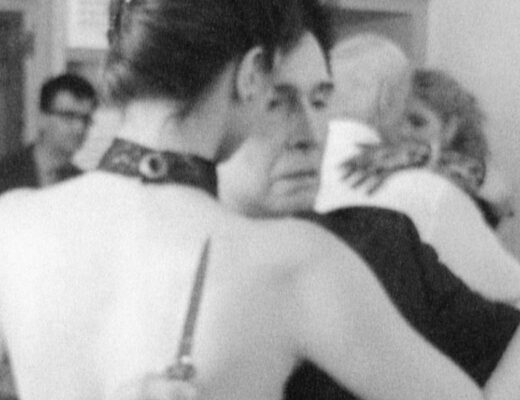A coming-of-age story about a sensitive, artistically-minded young man with filmmaking aspirations sounds like a recipe for mawkish solipsism, so it’s nothing short of a miracle that January deftly avoids cliches and easy catharsis. Recently anointed the Best International Narrative Feature by this year’s Tribeca jury, Viesturs Kairišs‘ film is a remarkable document of burgeoning political consciousness that feels authentic and lived-in, a time capsule of the tail-end of the Cold War that is still (unfortunately) relevant to today’s heated geopolitical atmosphere. Beginning in January 1991 in Riga, the capital of Latvia, special units of OMON, or USSR special forces, have occupied press offices to suppress the publishing of any Latvian independence writings. Initially declaring themselves peacekeepers, these agents promise that no violence will take place. But young Jazis (Karlis Arnolds Avots) sees soldiers arresting journalists and immediately begins documenting the events with his small, portable camera. He’s quickly spotted and beaten, returning home to his parents with a bruised and bloodied face.
Jazis is a typical angsty teen, unsure of what to do with himself besides watching films and talking about them with the guy who runs the bootleg VHS kiosk in the subway station. His father is officially a member of the communist party, an increasingly tenuous position that has driven a wedge between him and his wife, Jazis’ mother. For his part, Jazis has resigned himself to submitting to his compulsory military service (“what if you get sent to Afghanistan?” his mother yells repeatedly). Instead, he and a friend wind up enrolling at a local arts academy, where Jazis meets people as movie-mad as himself. Indeed, his first encounter with Anna (Alise Dzene) revolves around her having a copy of the soundtrack to Jarmusch’s Stranger Than Paradise. This is familiar stuff, certainly; Jazis and Anna begin a whirlwind romance, while attempting to navigate their families and Anna’s sudden success when she’s chosen to accompany a famed director on a location shoot. The immature, inexperienced Jazis is jealous, of course, but his self-pity is interrupted by a sudden surge of Soviet troops determined to occupy the capital city. Kairišs has mentioned in interviews that much of this is autobiographical, and the film is full of small details and deft touches that belie the occasional familiarity of the material. Rather than turning to the cozy, well-trod confines of the French New Wave for inspiration, Kairišs instead looks to Bergman (the first shot of January is a scene from Winter Light playing on an old CRT TV), Tarkovsky, Jarmusch, and a large helping of punk and post-punk music.
What’s most exciting here is the filmmaking, the skillful weaving together of formats that conjure up some elusive combination of nostalgia and you-are-there verisimilitude. The narrative proper is shot in what appears to be 16mm film, while the footage that Anna and Jazis shoot themselves is Super-8. Eventually, as the conflict escalates and Jazis becomes determined to record it, he uses a period-appropriate VHS camcorder, the fuzzy digital image replacing the gentle, almost opaque textures of the small-gauge film. It’s a poetic excavation of how we not only film the present tense, but then process and re-experience it as reportage, or memories. Working with cinematographer Wojciech Staron and shooting in the confining Academy Ratio, the compositions here are filled with information. There’s constant movement, figures in motion crammed into the frame and enveloped by the cramped environs of small apartments, classrooms, tiny shops, tube stations, etc. Brief expeditions outdoors offer a respite, with Kairišs juxtaposing the young lovers against a vast, frozen body of water that might as well be the surface of the moon. By the end of the film, Jazis has traded shooting music videos for documenting action at the front line of the attempted invasion/occupation. There’s a whole lifetime squeezed into that transition, and when Jazis and Anna return to the water, it’s now thawed. The old adage “you can’t step into the same river twice” comes to mind, as does a sense of awakening, new beginnings, rejuvenation. Kairišs’ talent is in suggesting all of these meanings with just an image, fully aware of its power as both metaphor and political tool. This is sharp, invigorating filmmaking.
Published as part of Tribeca Film Festival 2022 — Dispatch 5.







